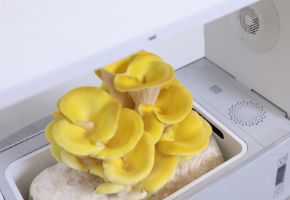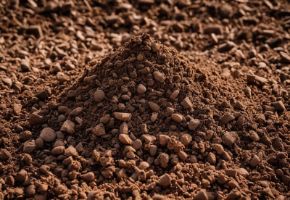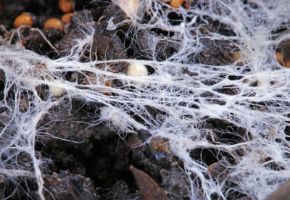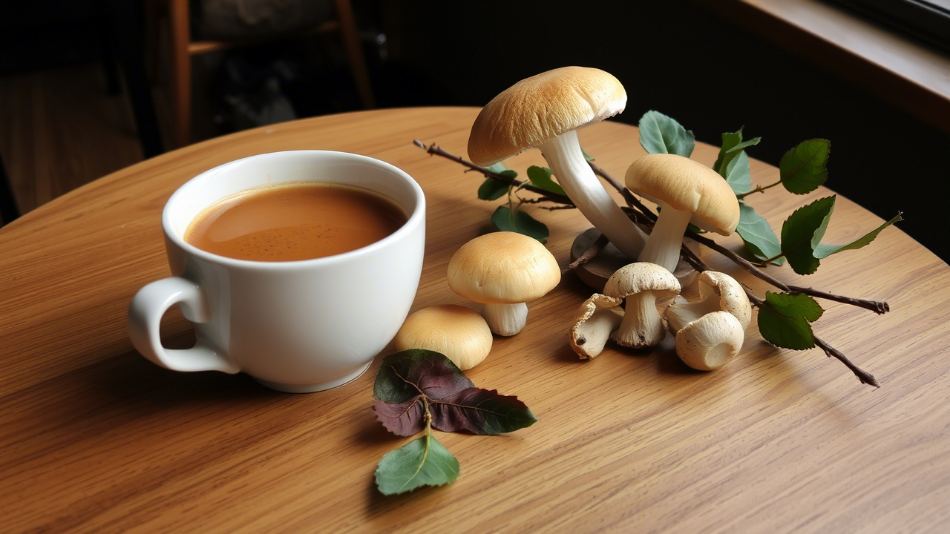In the vast universe of mycology applied to nutrition, mushroom coffee is emerging as one of the most interesting trends for those seeking healthy alternatives to traditional coffee. But what really lies behind this beverage that combines coffee beans with medicinal mushrooms? In this article, we will explore every aspect of this fascinating hybrid, from its historical origins to modern scientific studies confirming its properties.
For us mushroom enthusiasts, mushroom coffee represents a bridge between herbal tradition and modern nutraceuticals, where mycological knowledge meets contemporary wellness needs. Get ready to discover why this beverage is conquering the world of natural well-being.
The historical roots of mushroom coffee
Before delving into where to find mushroom coffee today, it's fascinating to learn that the use of mushrooms in stimulating beverages has ancient roots:
The siberian Chaga tradition
Siberian populations have for centuries prepared an infusion with chaga mushroom (Inonotus obliquus), known for its tonic and adaptogenic properties. This preparation, similar to coffee in color and energizing effect, can be considered a precursor to modern mushroom coffee.
The use of mushrooms in traditional chinese medicine
In TCM, mushrooms like reishi (Ganoderma lucidum) and cordyceps (Cordyceps sinensis) were used to prepare energizing and fortifying decoctions, often reserved for emperors and the ruling class.
Europe and chicory coffee
Although not a true mushroom, roasted chicory root (used as a coffee substitute during famines) demonstrates how humans have always sought plant-based alternatives to stimulating beverages.
What makes mushroom coffee special?
Modern mushroom coffee typically combines high-quality arabica coffee with extracts of medicinal mushrooms, creating a unique synergy between caffeine and the bioactive compounds in mushrooms. But what are the key components?
The most commonly used mushrooms
- Ganoderma lucidum (Reishi): the "mushroom of immortality" in Chinese medicine
- Cordyceps sinensis/militaris: known for supporting energy and endurance
- Lion's Mane (Hericium erinaceus): cognitive and nervous system support
- Chaga (Inonotus obliquus): rich in antioxidants
- Turkey Tail (Trametes versicolor): immune support
The production process
Mushrooms are generally cultivated using organic methods, dried at low temperatures, and then extracted to concentrate the active compounds. These extracts are then combined with ground coffee in proportions ranging from 5% to 50%.
Properties and benefits of mushroom coffee
Let’s now analyze why this beverage is considered a superior natural energizer compared to traditional coffee:
Balanced energizing effect
A study published in the Journal of Functional Foods demonstrated that the combination of caffeine and mushroom adaptogens produces more sustainable energy without the typical post-caffeine crashes.
Cognitive benefits
Particularly interesting are the effects of Lion's Mane on nerve growth factor (NGF), as highlighted by research on neuronal regeneration.
Gut health and prebiotics
The beta-glucans present in many medicinal mushrooms act as natural prebiotics, supporting the gut microbiome. This makes them especially interesting for those seeking systemic benefits starting from gut health.
Reduction of oxidative stress
A comparative study showed that mushroom coffee contains up to 50% more antioxidants than traditional coffee, thanks mainly to the contribution of chaga and reishi.
Where to find high-quality mushroom coffee
For those wanting to explore this world, it’s essential to choose high-quality products. Here are some tips:
Online purchase from specialized producers
Some online stores offer tested products with high percentages of pure extracts.
Natural food stores
Chains specializing in organic products are beginning to include mushroom coffee among their offerings, often in the superfood section.
Pharmacies and specialized herbal shops
Some herbal shops with advanced myco-therapy departments are starting to offer customized mushroom coffee blends.
DIY (for the more experienced)
For true mycology enthusiasts, it’s possible to create your own blend using pure mushroom extracts and organic coffee. However, this requires good knowledge of dosages and interactions.
How to prepare the perfect mushroom coffee
The preparation is similar to traditional coffee but with some precautions:
Water temperature
Ideally between 85°C and 92°C to preserve the heat-sensitive compounds in mushrooms.
Steeping time
About 4-5 minutes to allow proper extraction of both caffeine and beta-glucans.
Recommended pairings
Mushroom coffee pairs well with:
- Plant-based milk (great synergy with coconut milk)
- Cinnamon or cardamom
- Small amounts of natural sweeteners like manuka honey
Frequently asked questions about mushroom coffee
Does mushroom coffee taste like mushrooms?
Well-balanced blends taste very similar to traditional coffee, with at most slight earthy notes reminiscent more of chicory coffee than fresh mushrooms.
How Much Caffeine Does It Contain?
Generally about half that of traditional coffee, but the energizing effect is enhanced by the mushroom compounds.
Is It Suitable for Everyone?
As with any product containing active ingredients, it’s always advisable to consult a doctor before regular consumption, especially in case of specific conditions or medication use.
Mushroom coffee: a new energy drink
Mushroom coffee represents a perfect synthesis between mycological tradition and modern nutritional science. For mushroom enthusiasts like us, it offers an innovative way to benefit from the properties of medicinal mushrooms in daily life.
With growing attention to gut health and cognitive well-being, this beverage is likely to continue gaining popularity, opening new frontiers for the use of mushrooms in the nutraceutical field.










